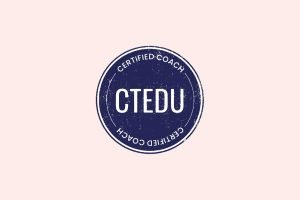Last updated on October 29, 2023
“Ohh! I was totally thinking that!” Rachel*, my newest coaching mentee, was having a breakthrough as I provided feedback on her latest coaching session. “I did hear that ‘respect’ was a theme in my client’s relationship with her boss, but I didn’t think it was right to bring it up.” She paused to reflect. “I wasn’t sure how to ask.”
I smiled. As a Mentor Coach with the International Coaching Federation (ICF), I love watching sparks of awareness ignite in my mentees. When I was a newer coach, such “ah-ha moments” were crucial to developing my skills and confidence, and they still inspire and teach me today – even when they’re someone else’s.
These moments also remind me how the right advice at the right time has made a big difference in my 13-year coaching career. There are four lessons that have been particularly valuable not only to me, but my nearly 100 mentees.
Table of Contents
Lesson 1: It’s OK to use notes until behaviors become habits.
Sometimes newer coaches make simple coaching practices unnecessarily difficult. For instance, I often see mentees struggle with ineffective opening questions or obtaining a clear agreement. This is usually because they invent questions in the moment that are vague, wordy, or weak. This failure to create a clear “container” at the beginning ripples throughout the rest of the session in wasted time, lack of direction, and lack of depth.
There’s no need to be fancy or creative on the fly at key structure-creating moments. Brevity, clarity, and consistency not only make the process easier for the coach, they increase trust and safety for the client. For years, at the beginning of a session I’ve always asked either: “What would you like to work on?” or “What would you like to focus on?” These questions are clear, concise, simple, focused, and open.

They also started out scripted. Relying on the same one or two questions to open the funnel of session topics builds effective habits and creates focus for both client and coach. Later, when it’s time to narrow that funnel down to an agreement, consistently asking the same outcome question (like “What would you like to walk away with at the end of the session?”) creates clarity and direction for every coaching decision that follows.
Until critical questions like these become a habit, there’s no reason a coach can’t keep a “cheat sheet” handy with a script. There’s also nothing wrong with relying on a sheet of reminders, tips, terminology, or self-encouragement! As a newer coach, I kept such a sheet next to my computer for many months. That sheet turned into a post-it that endured for a couple years after that. Now, even as an experienced Professional Certified Coach (PCC) I have a folder called “coaching mastery” on my desk, which contains various notes I review from time to time.
Letting go of perfection, owning our continuous learning process, and relying on notes when we need them benefits coaches and clients. It normalizes these behaviors for our clients and frees up more energy for us to dedicate to unscriptable essentials like presence and rapport-building.
Lesson 2: You can trust yourself and your existing skills
It’s common for adults to develop a kind of amnesia when learning a new skill. We often face new learning with the appropriate “beginner’s mind”, but in the process forget our existing personal strengths and hard-won professional insights. While some newer coaches find it easier to set aside the past to focus on new learning, I encourage them to make this temporary.
One of the best gifts coaches bring to coaching is our Self, and that includes all of who we were before coach training. One of the benefits coaches can gain from working with a skilled Mentor Coach is validation that many of their natural instincts are spot on. Like Rachel, sometimes the barrier to deeper coaching isn’t the coach’s lack of awareness or poor listening but their self-doubt or a lack of skill in how to act on those instincts.
Letting go of perfection, owning our continuous learning process, and relying on notes when we need them benefits coaches and clients.
Learning the unique skills of professional coaching is crucial. However, I believe in a “both-and” approach where coaches master and rigorously apply the processes, practices, and competencies of professional coaching and make space for what our instincts, intuition, and unique Selves dictate.
One of the hallmarks of mastery – not just in coaching – is knowing when to follow the rules and when to break them. Such discernment comes with learning the rules well, gaining experience, trusting oneself, and mustering the courage to take risks.
Lesson 3: Walking the talk is essential
I think of coaching as a spiritual practice. Even after 13 years of being a coach, I’m still amazed and amused by how often I attract clients and coaching topics that are eerily relevant to my latest questions, growing edges, and traumas. I’ve experienced many of my own breakthroughs through witnessing my clients’ insights, failures, and triumphs.
But there are two elements that are necessary to facilitate breakthroughs in our clients. After “trust and safety”, I believe “coaching presence” is the most important coaching competency. I frequently tell my mentees that if they prioritize these, their clients will always benefit from coaching. The reason is that clients can experience transformation when safety and presence are solid, even when a coach “messes up” the questions, summaries, agreement, and invitation to action. I’ve experienced this myself from both sides of the coaching relationship.
As a trauma-informed coach and somatic resilience practitioner, I acutely understand why safety and presence are so key. As a species, humans are especially wired to regulate our nervous systems with other humans, and in modern civilization most of us are starved for healthy co-regulation. Even over video and phone, coaches can provide this healing connection which works miracles.
Such discernment comes with learning the rules well, gaining experience, trusting oneself, and mustering the courage to take risks.
However, coaches must walk their own talk to create this connection through trust, safety, and presence. Coaches must be self-reflective, self-compassionate, and engaged in our ongoing “personal work”. We must be on a healing journey around our own trauma (yes, trauma). We must know and honor our triggers, limitations, and boundaries. We must be highly ethical and receive mentorship and supervision. We must commit to self-care and have tools to regulate our nervous systems. We must be working on dismantling our internalized racism, sexism, and homophobia – no matter the body we occupy. And we must approach all this “personal work” with courage and self-forgiveness.
Whether or not a mentee shares my belief about coaching as a spiritual practice, a commitment to integrity and personal work is a must-have. It’s what enables coaches to build the trust and presence that are necessary to facilitate clients’ growth and transformation. This can’t be faked, and it’s what differentiates us from the emerging field of AI coaching.
Lesson 4: Being a great coach doesn’t make you a successful business owner
Today, more coach training programs include instruction on business-building than when I was trained in 2014. However, most coaches still obtain their certificates and credentials without the knowledge necessary to build a successful coaching business. I don’t believe such instruction is the role of coach training programs, but that skill gap is a big one into which many eager, new coaches fall.

New coaches hoping to build a coaching practice face the same sobering truth other new entrepreneurs face: being good or great in your field doesn’t automatically translate into a successful business. Running a sustainable business is an entirely different skillset than being a coach. A coach must either learn, or hire other people to perform, the following essential tasks: (1) bookkeeping and accounting (including invoicing and taxes), (2) marketing and sales (including website, social media, collateral, and networking), (3) contracting and legal, and (4) office and client management (including scheduling, follow up, and tech troubleshooting). Personally, I’ve always had a lawyer, a CPA or EA, and a tech/web expert on deck, and they have all been lifesavers.
Being a skillful coach is critical to gaining clients that are a good fit, and building an excellent reputation that leads to repeat business and referrals. However, without the additional business skills or team, you won’t be able to serve all the people who need you, much less pay the bills.
Even “old” coaches need these lessons
I was thrilled for Rachel the day she got validation about her instincts. And she gave me the gift of hearing important advice come out of my mouth that I still needed to hear.
I often tell mentees that I, too, sometimes struggle with self-doubt. I still sometimes wonder if a choice I made was “right”, or if the outcome would have been “better” in an alternate universe. I sometimes make a “rookie error” when I “should have known better.” I occasionally say things that don’t land well with my clients, or even hurt their feelings.
I tell my mentees the good and bad news: many of their questions will never be fully answered, or their doubts fully resolved. I tell them this is where the art and science of coaching meet: we trust ourselves, make choices, and repair relational harm. We celebrate triumphs, learn from mistakes, develop new skills, and rely on our tools and support systems.
To me, those aren’t just coaching lessons, they’re life lessons.
*Name and details have been changed to protect client confidentiality.

Susana Rinderle
Susana Rinderle, MA, PCCis a transformational life & leadership coach, ICF Mentor Coach, and trauma-informed resilience practitioner. Her first career was in DEI and leadership development where she spent 30 years garnering results for employers and clients across the U.S. and abroad.She is a former Principal Consultant for Korn Ferry and a TEDx speaker. Learn more atwordswisdomwellness.com
















Be First to Comment